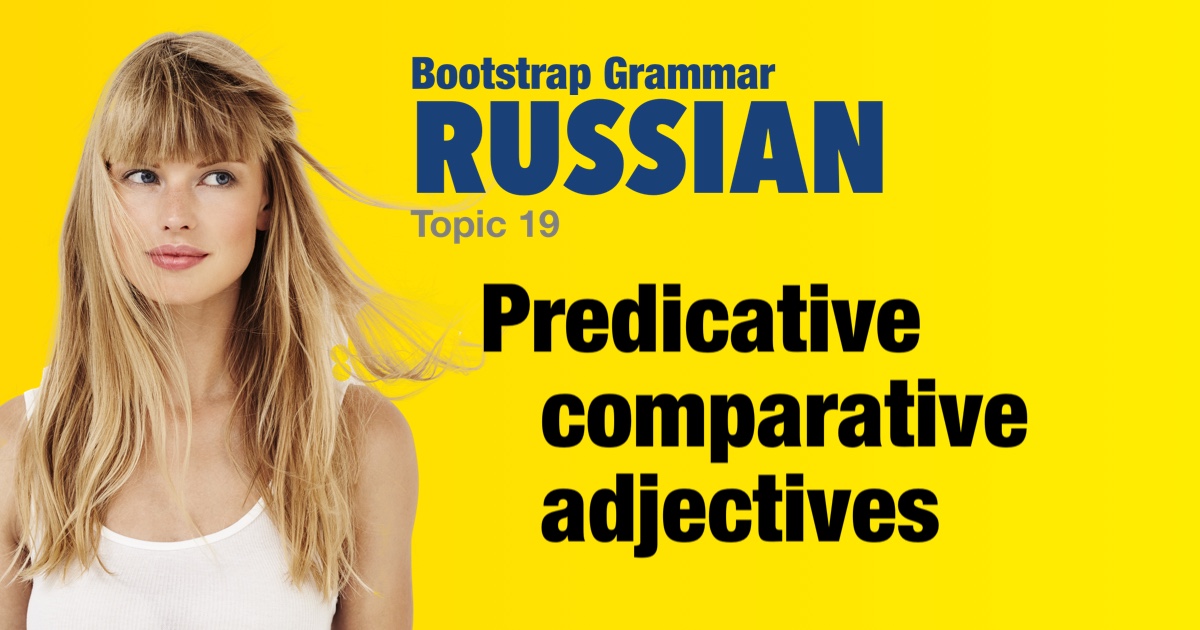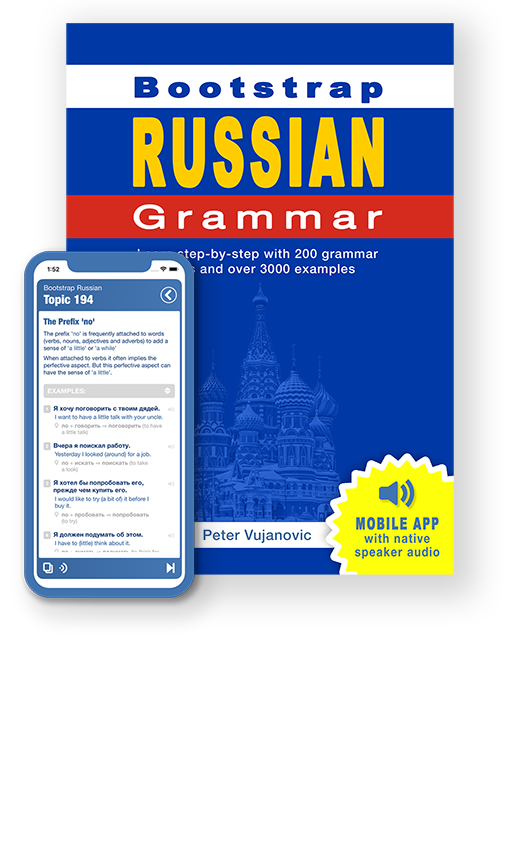Russian grammar - Predicative comparative adjectives |
|||
|
|||
In English the comparative adjective is formed by adding '-er' to the end of the adjective. So from 'new' we get 'newer'. In English these can be used anywhere in a sentence: 'This newer car' (called 'attributive'). And 'This car is newer' (called 'predicative'). Similarly in Russian adjectives can be either 'attributive' (and come before a noun) or 'predicative' (and come after a verb). In Russian comparative adjectives are formed differently depending on whether they are 'predicative' or 'attributive'. Forming a predicative comparative adjective is simple: • Take the stem of the adjective and add «-ее». These do not vary with case, gender or number. Note that certain of the most common adjectives (like большой (big), маленький (small), хороший (good), плохой (bad) etc.) have irregular predicative comparative forms. These will be covered in a coming topic. |
| Examples: | |
|
Моя книга новее.
My book is newer.
|
|
|
Этот музей интереснее.
This museum is more interesting.
|
|
|
Это облако белое, но то облако ещё белее.
This cloud is white, but that cloud is even whiter.
|
|
|
Ее письмо длиннее?
Is her letter longer?
|
|
|
Разве она не красивее?
Isn't she more beautiful?
|
|
|
Но мои лилии ещё красивее.
But my lilies are even more beautiful.
|
|
|
Это кафе ещё популярнее?
Is this cafe even more popular?
|
|
|
Их машина быстрее.
Their car is faster.
|
|
|
Наша машина ещё быстрее.
Our car is even faster.
|
|
|
Почему твой брат умнее?
Why is your (informal) brother smarter?
|
|
|
Сегодня море синее.
Today the sea is bluer.
|
|
|
Разве этот путь не длиннее?
Isn't this way longer?
|
|
|
Нет, этот путь быстрее.
No, this way is quicker.
|
|
|
Ваш печенье вкуснее.
Your (formal) biscuit is tastier.
|
|
|
Когда здесь теплее?
When is it warmer here?
|
|
 |
|




